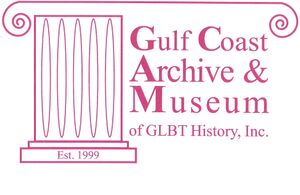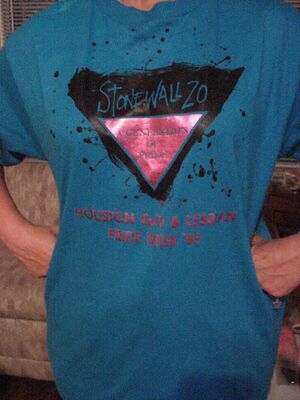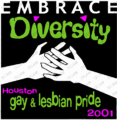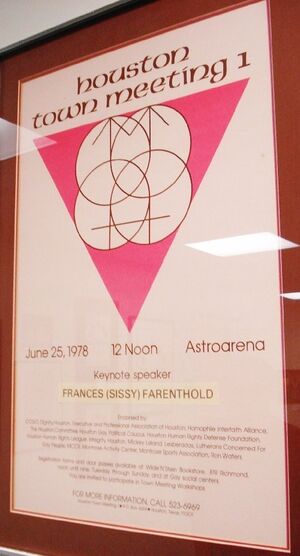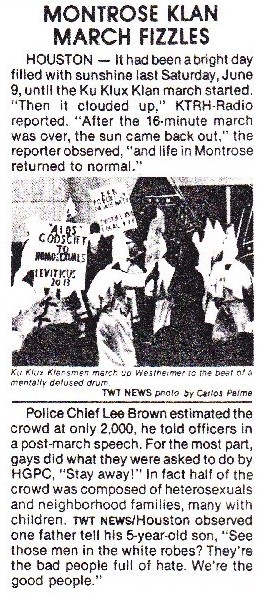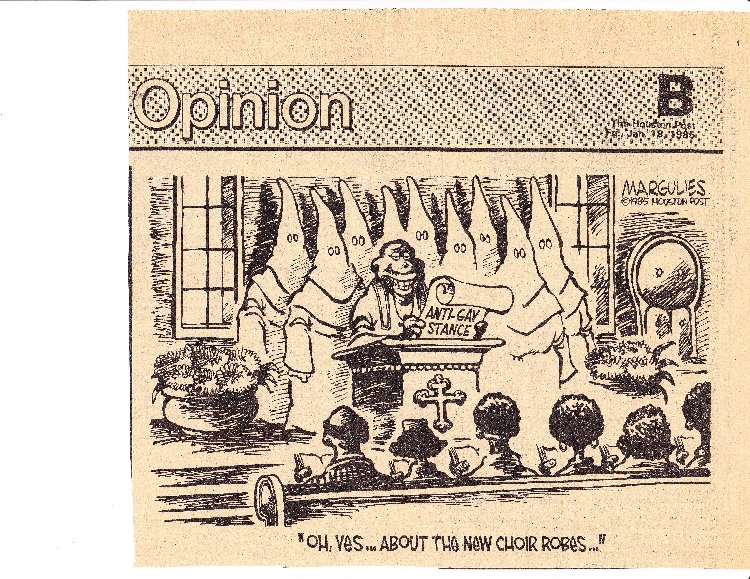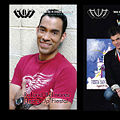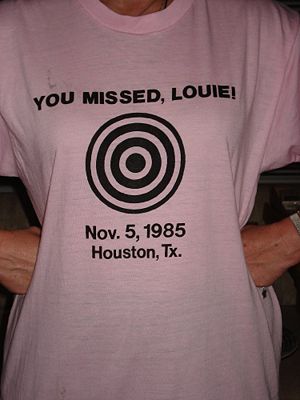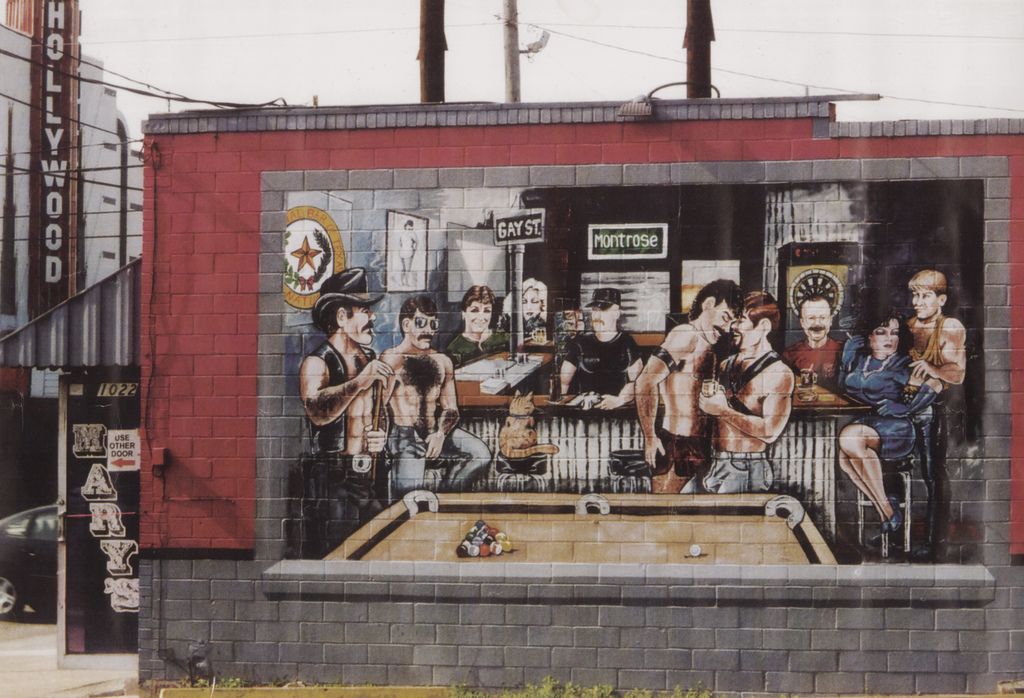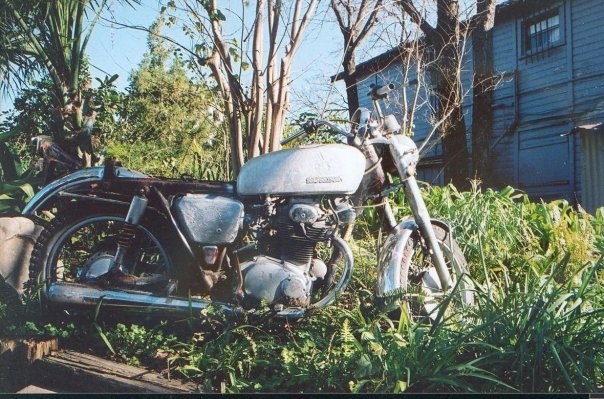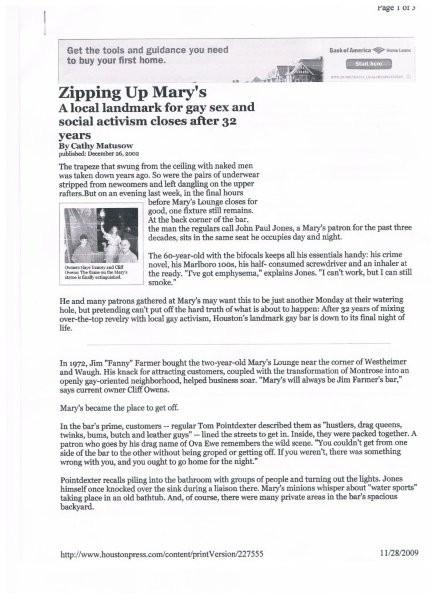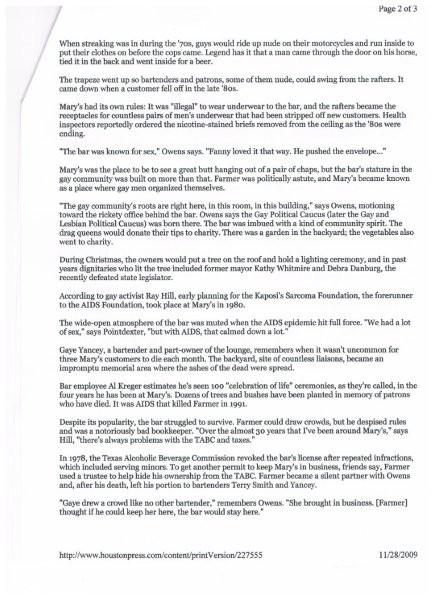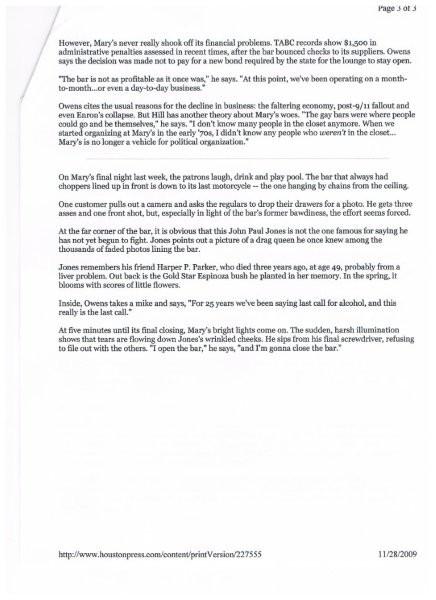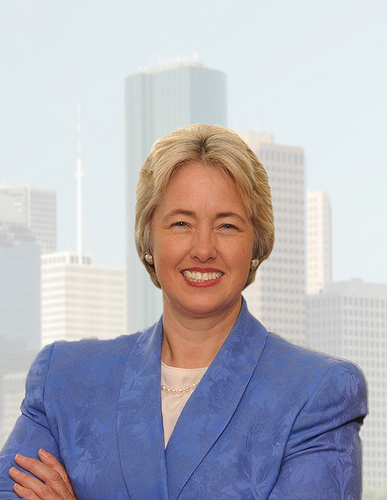Difference between revisions of "History in Houston, 40 Years after Stonewall"
| Line 100: | Line 100: | ||
The 80's proved to be a difficult time for Houston. The AIDS epidemic hit the city at its core. Each week the obituary columns grew larger. A magizine called "This Week in Texas", known as the "twit" provided the state with a very strong realization. Gay men were dying at a very fast rate.<gallery Caption=" "> | The 80's proved to be a difficult time for Houston. The AIDS epidemic hit the city at its core. Each week the obituary columns grew larger. A magizine called "This Week in Texas", known as the "twit" provided the state with a very strong realization. Gay men were dying at a very fast rate.<gallery Caption=" "> | ||
Image:Archives display 02.jpg | Image:Archives display 02.jpg | ||
| + | Image:Archives display 03.jpg | ||
</gallery> | </gallery> | ||
In 1985, Mayor Louis Welch, who while running for re-election, made a famous gaffe by saying inadvertently on microphone that his solution to HIV would be to “shoot the queers.” Once again the GLBT community of Houston spoke out. T-shirts were made with the caption' '''"Don't shoot me Louie!" and You missed Louie!''' | In 1985, Mayor Louis Welch, who while running for re-election, made a famous gaffe by saying inadvertently on microphone that his solution to HIV would be to “shoot the queers.” Once again the GLBT community of Houston spoke out. T-shirts were made with the caption' '''"Don't shoot me Louie!" and You missed Louie!''' | ||
Revision as of 22:34, 22 February 2010
THIS SITE IS UNDER CONSTRUCTION
The Gulf Coast Archive and Museum of GLBT History, Inc. was formed in 1999. Their mission is to preserve the history of the Gay, Lesbian, Bisexual and Transgender community.
Stonewall is a pivotal point in our history. As an active museum, GCAM dedicates itself to keeping moments like this alive for future generations to understand the journey that has occured thus far.
But the question is, "How did we get here"?
A major building block in the GLBT History of Houston began in response to the "singing orange juice lady", Anita Bryant. CLICK HERE TO LISTEN TO ANITA SING!
In 1977 Anita Bryant was to appear in Houston, Texas for a singing engagement. Having previously demonstrated her disapproval of homosexuals, thousands of protestors took to the streets and began a march which has grown into what is now Houston's Pride Parade.
What began as a small unrehearsed march in Downtown Houston has resulted in one of the largest Pride celebrations in the United States. Each year Houston's pride festival brings with it a new theme. One of the most visible displays of this theme is the posters, t-shirts and flyers that are distributed throughout the city. Some of these flyers are listed below:
- Houston Pride
This momentum started in 1977 led to one of Houston's most significant GLBT movements, Town Hall Meeting 1.
The picture shown here is a from the June 25, 1978 meeting at the Astroarena.
What had started as a simple protest had now developed into a community voice. Houston's GLBT community was outraged! We had seen Stonewall and now it was our turn to speak out also.
Another powerful moment is captured in records from the 1977. Lesbians campaigned for visibility through a dramatic release of colored balloons during the 1977 National Organization of Women meeting in the Astrodome.
Our voice was becoming louder!
In 1984 the Klu Klux Klan staged a march in Montrose, the heart of Houston's gay community.
"Click to enlarge and read"
Although terror might have been expected to grip the residents of Montrose, once again they stood strong. With the help of the police department the 15 minute march ended with no casualties.
Neither Anita Bryant nor the Klu Klux Klan could stop us!
Fueled by the power of Stonewall, Houston's GLBT community could no longer be silent! Even the local media captured the feeling. This cartoon was printed in the Houston Post on Friday, January 18, 1985.
The 80's proved to be a difficult time for Houston. The AIDS epidemic hit the city at its core. Each week the obituary columns grew larger. A magizine called "This Week in Texas", known as the "twit" provided the state with a very strong realization. Gay men were dying at a very fast rate.
In 1985, Mayor Louis Welch, who while running for re-election, made a famous gaffe by saying inadvertently on microphone that his solution to HIV would be to “shoot the queers.” Once again the GLBT community of Houston spoke out. T-shirts were made with the caption' "Don't shoot me Louie!" and You missed Louie!
One on the most recent events in the history of Houston is the closing of our oldest gay bar, "Mary's Naturally".The picture below is the mural that was painted on the outside of building.
The spark that was ignited in our heart by Stonewall shines brightly every year as the crowd would gather to watch the Pride Parade at Mary's Naturally. Roof top was the best view in town!
- Mary's Naturally - Click on any Picture to enlarge
During its prime, Mary's Naturally was
a hub of excitement! Everything from
drag shows to dog shows. Mary's Naturally became the "Stonewall" for Houston. The community would gather to organize demonstrations for local causes or to speak out against city government. It was located in the exact center of the GLBT community. "On a Friday night you could experience your favorite fetish out back, and on Monday you could attend a rally to support AIDS funding."
It was rumored that this motorcycle, which was in the back patio, belonged to Janis Joplin, however it is very unlikely.
The following story was printed in the Houston Press in late November 2009.
2010 marked another first for Houston. Annise Parker became the first openly gay mayor.
